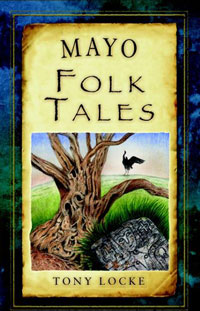


A Study in Herbalism.
Over hundreds of years the healing properties of plants and herbs has not changed. What our ancestors considered a healing plant or herb thousands of years ago is still a healing plant or herb today. Healers of the ancient world were expected to know their herbs, plants gave healing powers to those who studied them, worked with them and respected them.
A rich heritage of plant lore exists in Ireland and we can trace this heritage at least as far back as the Bronze Age. From the analysis of pollen grains we know that during this period people used Meadowsweet as a floral tribute at burial sites. From Druidic times to the present century, Ireland has had a long tradition of healing and excellence in medical education.
Today we have the opportunity to benefit from the accumulated herbal knowledge and wisdom of our ancestors and this allows us to look back through history harvesting for our own benefits the herbs that have stood the test of time. However, a great deal of credit for this knowledge should go to the women healers of the past for it was they who essentially began the work of learning and understanding herbs and because of their healing powers they were persecuted as witches, of course when the male physicians arrived on the scene they claimed the right and the credit for all this knowledge.
Many of the synthetic medicines that are on the market today owe their existence to natural herbs, plants and trees. St John’s Wort, Lavender, Feverfew, Witch hazel, the list is long, in fact the original painkiller marketed over a hundred years ago is a derivative of White Willow bark, its name is Aspirin.
Herbal medicine sometimes referred to as herbalism is the use of herbs for their therapeutic or medicinal value. An herb is a plant or part of a plant that is valued for its medicinal, aromatic or savoury qualities and they contain a variety of substances that act upon the body. Herbalists use the leaves, flowers, stems, berries and roots of plants to prevent, relieve and treat illness and herbal medicine has a long and respected history.
The World Health Organisation estimates that 4 billion people, 80% of the world population, have used or presently use herbal medicine for some aspect of their primary health care. Herbal medicine is a major component in all indigenous people’s traditional medicine and it is a common element of homeopathic and naturopathic medicine.
Major pharmaceutical companies are currently conducting extensive research on plant materials gathered from the rain forest and other places for their potential medicinal value. However, they need to be quick for at the rate of deforestation that is being carried out in South America, we may be losing hundreds or thousands of potential cures. Over the next series of posts I will be concentrating on various herbal remedies.
I must point out that you should always consult a qualified medical doctor as some herbal treatments may have a reaction to prescribed medication. Never stop your medication without consulting your G.P.
I use herbal remedies to compliment my prescribed medication with my doctor’s knowledge.


Hi V.K. Sinha
ReplyDeleteWelcome to my blog. I am very happy that you enjoyed the post and took time to comment. You will find that this blog covers a wide and varied number of topics, all of which are of interest to me and I hope others. Please continue to follow and if there is anything that you may wish to see on here don't hesitate to let me know. If it falls within my remit then I will post.
I wish you and yours a very happy and peaceful Imbolc.
SilentOwl.